Bioinformatics Bazaar
Bioinformatics Bazaar is designed to showcase products, software, tools, and services of interest to the greater bioinformatics and computational biology community. The products, services, and tools included in this directory are crowd-sourced. The content provided and placement of offerings within this section should not be considered endorsements of ISCB.
Links within this page: Publishing | Degree Programs/Careers/Recruiting | Tools/Software | Databases | Services | Hardware | Professional Societies/Organized Groups
Publishing
 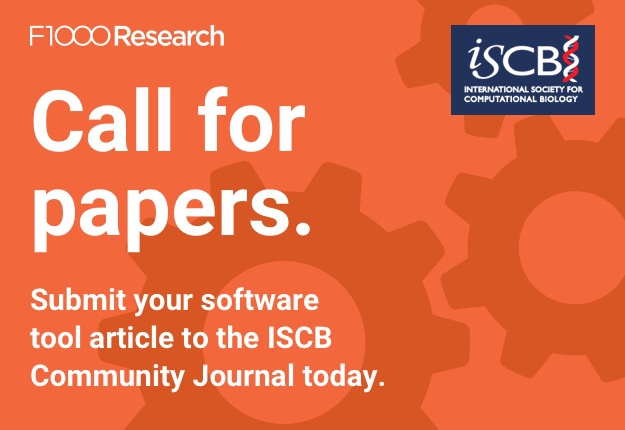 (Click to download) |
F1000Reseach f1000research.com F1000Research is an Open Research publishing platform for scientists, scholars and clinicians offering rapid publication of articles and other research outputs without editorial bias. All articles benefit from transparent peer review and editorial guidance on making all source data openly available. |
| Oxford University Press https://academic.oup.com/BIOINFORMATICS Bioinformatics publishes the highest quality scientific papers and review articles with its main focus is on new developments in genome bioinformatics and computational biology. |
 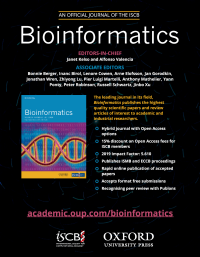 (Click to download) |
Degree Programs/Careers/Recruitiung
 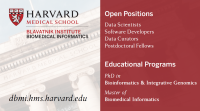 (click to download) |
Harvard Medical School, Biomedical Informatics http://dbmi.hms.harvard.edu/ The Harvard Medical School Department of Biomedical Informatics offers a variety of opportunities to increase your knowledge base and skill set in the application of quantitative principles to biomedical discovery. Programs include a Master’s, PhD, and Summer Institute. To learn more about these programs as well as postdoctoral fellowships and software engineering opportunities, please visit: http://dbmi.hms.harvard.edu/ |
| Janssen Immunology https://www.janssen.com/ Janssen Research & Development, LLC is a part of the Janssen Pharmaceutical Companies of Johnson & Johnson. The mission of our immunology therapeutic area is to redefine treatments for immune diseases by delivering transformational and accessible therapies and regimens to patients with autoimmune disease. |
  (Click to download) |
 |
The Jackson Laboratory https://www.jax.org/ JAX uniquely amplifies the efforts of the global biomedical research community. We develop and share our research, innovative tools and solutions, ever‑expanding data resources, more than 11,000 specialized mouse models and services, and a suite comprehensive educational programs to empower basic scientific research and speed drug discovery across the globe. |
Tools/Software
 |
Gene Pattern Notebook https://notebook.genepattern.org/ The GenePattern Notebook environment, notebook.genepattern.org, integrates the Jupyter Notebook system with the GenePattern platform for integrative genomics analysis, making hundreds of analyses available within notebooks without the need for programming. Additional features allow publication and collaboration. A library of useful analysis notebook templates can be adapted to a scientist's needs. |
| Expression Atlas https://www.ebi.ac.uk/gxa/home Expression Atlas at EMBL-EBI provides free resources that facilitate submission, archival, reprocessing and visualisation of functional genomics data. This allows researchers a powerful way to identify where their favourite gene is expressed and how its expression changes in disease. Our tools are continuously updated to incorporate datasets using new technologies. |
 |
 |
HiSCiAp https://usegalaxy.eu/ HiSCiAp is a user-friendly Galaxy setup to use ~80 Single Cell analysis modules from tools such as a Seurat, Scanpy, Monocle3, SCMap and others in QC, clustering, trajectory analysis and cell mapping. Tools are available at humancellatlas.usegalaxy.eu, can be installed on any Galaxy instance or used in command line. |
Databases
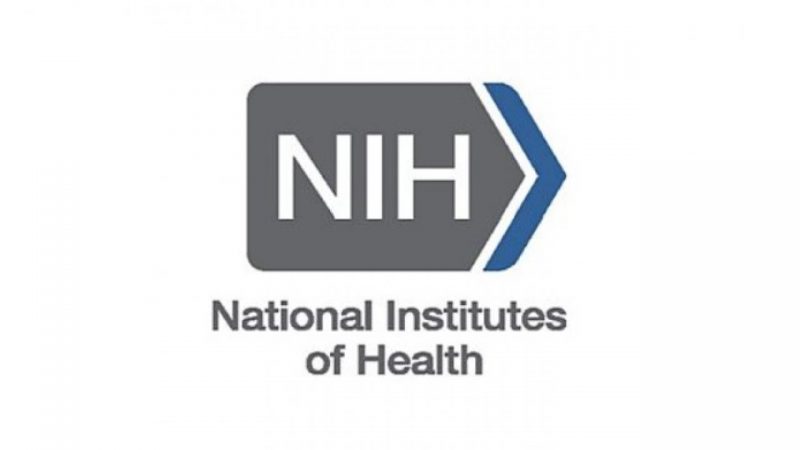 |
NIH ODSS https://datascience.nih.gov/ The Office of Data Science Strategy (ODSS) leads implementation of the NIH Strategic Plan for Data Science through scientific, technical, and operational collaboration with the institutes, centers, and offices that comprise NIH. The office was formed in 2018 within the Division of Program Coordination, Planning, and Strategic Initiatives, which plans and coordinates trans-NIH initiatives and research supported by the NIH Common Fund. |
Services
| None posted yet. |
Hardware
| None posted yet. |
Professional Societies/Organized Groups
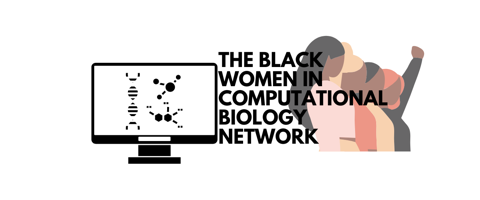 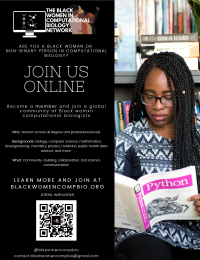 (Click to download) |
The Black Women in Computational Biology Network https://www.blackwomencompbio.org/ Twitter: https://twitter.com/blkwomencompbio?lang=en The Black Women in Computational Biology Network is an intersectional community of Black women who are working toward (or interested in) a career that combines computational and quantitative sciences with Biology. Our community is comprised of women across all degree and professional levels from an array of backgrounds in biology, computer science, mathematics, bioengineering, chemistry, physics, medicine, public health data science, and much more refining their unique skillset to answer biological questions through a computational and quantitative lens. |
| Folks in GCB https://www.folksingcb.com/ Inspired by The Roster of Women & Minorities in Physics, #womenalsoknowstuff, and, especially, DiversifyEEB, Folks in GCB was founded in the Summer of 2017 to highlight folks in the fields of genomics, computational biology, and bioinformatics (GCB) who are not traditionally represented in these fields. Folks in GCB is a self-nomination list for individuals from groups that are underrepresented in the genomics, computational biology, or bioinformatics community, which is in itself highly context-specific. It is designed to be a reference when looking for expert speakers or reviewers, for example, rather than an active community effort. |
 |
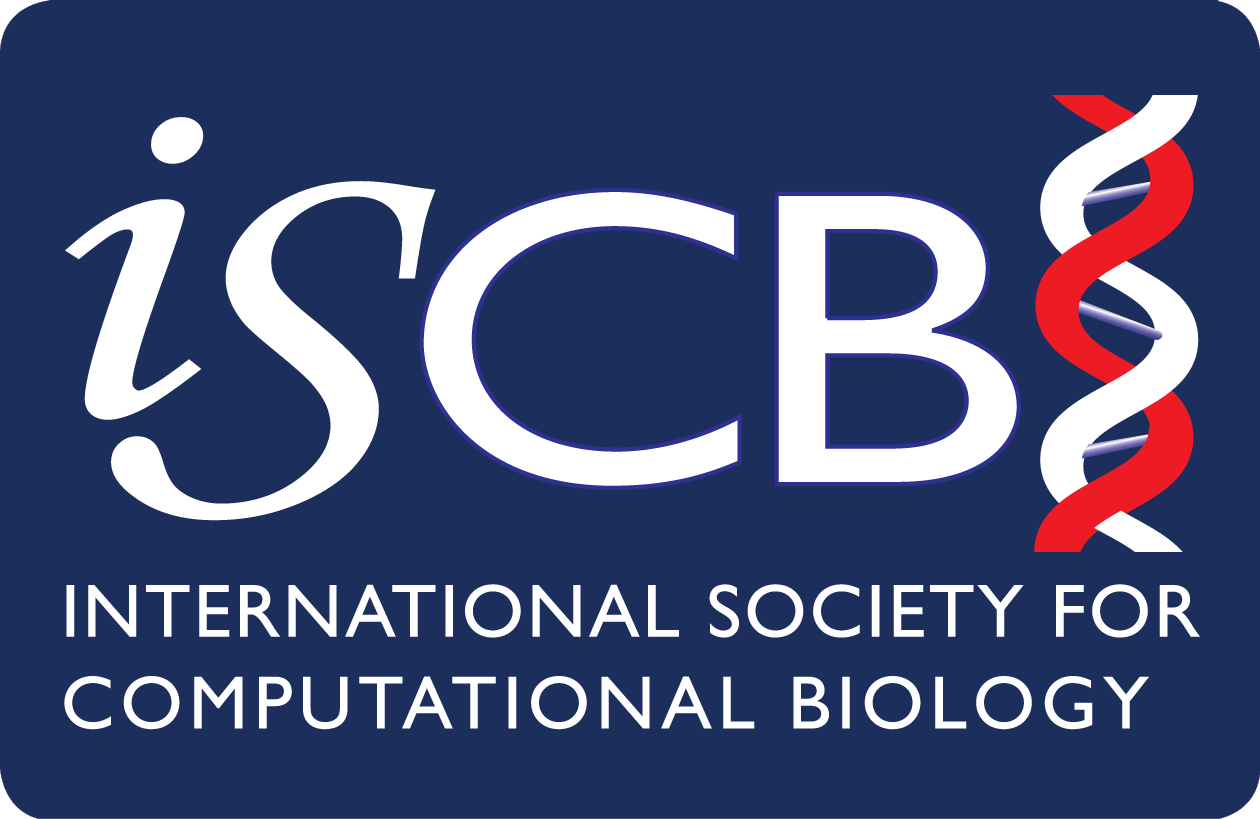 |
International Society for Computational Biology www.iscb.org The International Society for Computational Biology(ISCB) (www.iscb.org) was the first and continues to be the only society representing computational biology and bioinformatics worldwide. ISCB serves a global community of nearly 3,400 scientists dedicated to advancing the scientific understanding of living systems through computation by:
|
| ISCB Student Council www.iscbsc.org ISCB Student Council (SC, www.iscbsc.org) is an international network of young researchers in the broader disciplines of the field of Computational Biology. SC provides opportunities for networking, career enhancement and skills development for the next generation of Computational Biology leaders. The SC Symposium (symposium.iscbsc.org) is organized as a part of the annual ISMB conference with student presentations, keynotes, panel discussions and a poster session. Come visit our friendly SC representatives at the booth for more information. |
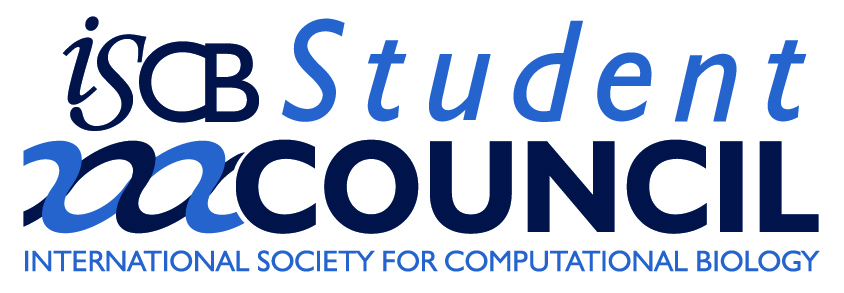 |
 |
GOBLET www.mygoblet.org GOBLET, the Global Organisation for Bioinformatics Learning, Education and Training, is a legally registered foundation whose mission is to cultivate the global bioinformatics trainer community, set standards and provide high-quality resources to support learning, education and training. GOBLET main objectives are: for the training portal to become both a pull mechanism and repository; to offer training for trainers and end-users; to develop training material and course standards; to provide training resources (surveys, best-practice guidelines, etc.); to raise funds to be able to meet our objectives; to offer a network/community forum; to give further consideration to mechanisms for trainer recognition. |
